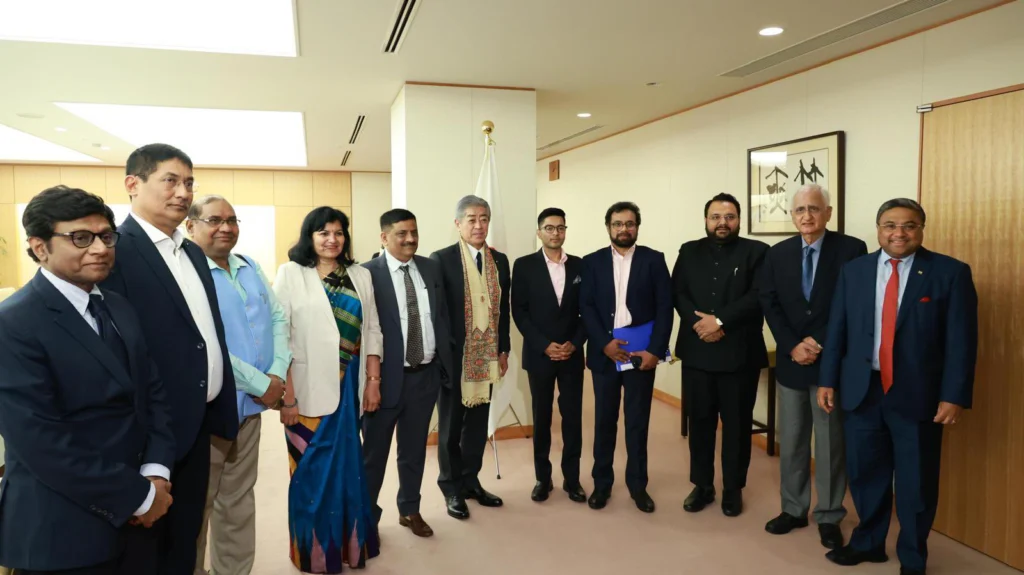‘He praised govt abroad’: After Abhishek Banerjee’s criticism, members in his delegation question ‘U-turn’

Abhishek Banerjee, a key West Bengal leader, has come under scrutiny from his own delegation. This happened after he publicly criticized the government, while members pointed out his earlier praise of the same government during foreign visits. This apparent contradiction has sparked debate about political consistency.
Banerjee’s Criticism Raises Eyebrows
Banerjee has become a vocal critic of the BJP-led central government. Recently, he openly criticized its economic policies, public welfare schemes, and treatment of state interests. Many saw his remarks as a bold challenge to the central government’s approach. His supporters welcomed these comments, viewing them as a stand for regional rights.
The ‘U-turn’ Controversy
The issue began when delegation members who traveled with Banerjee abroad expressed surprise. They said he had praised the government’s initiatives during those visits. A delegation member told reporters, “He spoke positively about government projects and success stories abroad. It contrasts with his recent criticisms.”
Critics called this a ‘U-turn’ and accused Banerjee of political opportunism. They questioned if his criticism was genuine or aimed at pleasing his political base.
Political Messaging and Public Perception
This conflict highlights the challenges of political messaging today. Politicians often adjust their tone depending on their audience. While this is common, sharp reversals risk losing public trust.
Political analyst Dr. Suman Roy said, “In today’s media, inconsistent statements damage credibility. Praising the government abroad but criticizing it at home confuses supporters and opponents alike.”
Dr. Roy added that ‘U-turns’ are not unusual but require explanation. “If a shift is based on new facts, it makes sense. But if it is just political posturing, it can harm the leader’s image.”
Banerjee’s Response
Abhishek Banerjee dismissed claims of inconsistency. He said his remarks abroad were meant to maintain diplomatic decorum and promote India’s progress. His domestic criticisms reflect genuine concerns about policy implementation.
He explained, “When abroad, I highlight the country’s strengths. At home, I speak honestly about problems. This is not a contradiction but balance.” Banerjee said leaders must address different audiences without compromising their values.
Political Implications
This debate within the delegation draws attention from political observers. It reflects the tension between diplomacy on global platforms and political conflict at home.
The BJP and other parties used the controversy to question Banerjee’s credibility. BJP spokesperson Ramesh Kumar said, “Opposition leaders show double standards. They praise the government abroad but criticize it at home. This hurts public trust.”
Banerjee’s party supporters remain loyal. They see these criticisms as attempts by rivals to weaken their leadership.
Role of Media and Public Discourse
The media amplified this controversy with headlines about Banerjee’s ‘U-turn.’ Social media debates followed, showing mixed opinions.
Some users criticized Banerjee’s inconsistency. Others said leaders must manage complex political realities and can’t be judged on select statements alone.
Broader Context: Strategy or Genuine Change?
The core question remains: Is Banerjee’s change strategic or genuine?
Political strategist Kavita Joshi said, “Leaders juggle roles—as diplomats, party heads, and representatives. Praising policies abroad helps secure investment. Domestic criticism maintains grassroots support.”
She added that transparency helps avoid accusations of hypocrisy. Leaders should explain their differing statements clearly.
Conclusion
The controversy over Abhishek Banerjee’s statements shows how tricky political communication can be. It reveals the fine line between diplomacy and domestic accountability.
How Banerjee handles these contradictions will affect his credibility. In today’s world, clear and consistent messaging is key to maintaining public trust.






